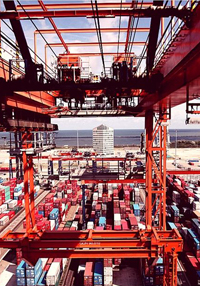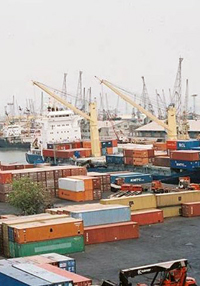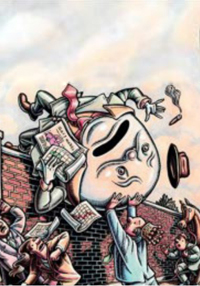This study examines the status of the export finance market in Sri Lanka and identifies the key limitations that prevent export finance from playing a proactive role in promoting exports. It reveals that the access, availability and diversity of export finance in Sri Lanka is limited and the few export finance solutions that are available remain weak and under-utilised. Export finance solutions reduce the risks faced by exporters such as country and commercial risks, encourage diversification into developing country markets, helps SMEs manage short term cash flow issues and allows exporters to attract buyers by offering better payment terms. By doing so, export finance can help promote exports.
This study examines the status of the export finance market in Sri Lanka and identifies the key limitations that prevent export finance from playing a proactive role in promoting exports. It reveals that the access, availability and diversity of export finance in Sri Lanka is limited and the few export finance solutions that are available remain weak and under-utilised. Export finance solutions reduce the risks faced by exporters such as country and commercial risks, encourage diversification into developing country markets, helps SMEs manage short term cash flow issues and allows exporters to attract buyers by offering better payment terms. By doing so, export finance can help promote exports.
Measures to prove compliance with an importing country’s standards and regulations are necessary for all exports. However, Sri Lankan exports to India suffer greatly from the associated costs and delays. This Insight proposes a Mutual Recognition Agreement (MRA) in Conformity Assessment Procedures (CAPs) to overcome this barrier and encourage further trade between Sri Lanka and India.
In February 2015 the Central Bank of Sri Lanka called an auction for one billion rupees on a 30 year bond. It then accepted 10 fold – 10 billion rupees – after the bids were in. This Insight identifies three errors in the published calculation of the monetary loss, and recalculates it at 0.9 billion rupees. It also highlights two other issues: conflict of interest, and confidence in institutions, which add to the negative consequences of the Central Bank decision.
Sri Lanka’s history with bi-lateral trade agreements demonstrates the need for more careful negotiation. This Insight explains how the tariff benefits of the India Sri Lanka FreeTrade Agreement (ISFTA) have been outweighed by the existance of non-tariff barriers (NTBs).
This brief analyses some of the changes made to the original 19th Amendment Bill during deliberations at the Committee State in Parliament. It also assesses the final version of the Amendment in terms of its delivery on the people’s expectations with respect to democratising and depoliticising governance.
Anticipation of voter behaviour in the 2015 presidential election can be informed by the evolution of voter trends in previous elections. Analysis of election results in Uva over the last decade suggests that the war and war-victory created a deviation in voting patterns among UNP supporters. In the opportunities to vote in the early aftermath of the war-victory, a section of the UNP might have been persuaded to cast a ‘gratitude vote’ for the UFPA, especially President Mahinda Rajapaksa. The numbers suggest that in later elections the same voter might have decided to abstain (become a ‘sleeper’) thus making the UNP seem uncompetitive in electoral contests, even while the UPFAs’ vote share ebbed. The 2014 Provincial Council election in Uva signals a return from that deviation towards normal competitive politics.
“Can the President’s executive powers be controlled through strengthening the Prime Minister’s functions without a referendum?” – This question has generated much commentary and dominated many discussions after the recent Supreme Court Ruling on the 19th Amendment Bill. This brief seeks to demystify and concisely explain two major principles on which the ruling was framed and explain in terms thereof, their implications for the executive power and office of the President, outlining the type of relevant constitutional changes that requires a referendum and the type that doesn’t.
This report analyses the legal and policy frameworks applicable to domestic workers in Sri Lanka. The report uses global standards of decent work to offer a fresh perspective on the problem and aims to outline a strategy for sustainable reform in Sri Lanka.
Verité Research recently conducted interviews with 22 members of civil society organizations to assess the quantity and quality of research on the subject of domestic workers’ rights in Sri Lanka. While measuring and evaluating current literature on domestic workers, this report sets out a four-pronged hypothesis on why domestic workers’ rights have not featured on the civil society agenda in Sri Lanka.







